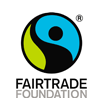CECOVASA is a secondary-level organisation made up of 10 primary co-operatives which represent 5,049 Quechua and Aymara peasant families.
About CECOVASA
La Central de Cooperativas Agrarias Cafetaleras de los Valles de Sandi (CECOVASA) was founded in 1970 by five co-operatives with the objective of exporting directly as a group, obtaining better prices and sharing costs. Before this, farmers sold their beans to local traders, who typically paid less than half the market price. Today the organisation exports directly to US and European markets and is one of the largest small producer organisations in the country.
Eight of the ten co-ops are located in Puno region and two in Cuzco region, with most farms located on the eastern slopes of the Andes. Aymara farms are mainly located in the Tambopata Valley and Quechua farms in the Inambari Valley. A third of coffee production is in the buffer zone of Bahuaja Sonene National Park.
This coffee growing area is characterised by high levels of poverty as coffee farmers struggle on low incomes resulting from their high production costs, low yields and low prices. The population has limited access to basic services: 72 per cent don’t have safe drinking water, 68 per cent have no electricity, 34 per cent have poor sanitation, and child malnutrition is as high as 41 per cent.
The farmers cultivate two hectares of coffee on average at altitudes of 800 to 2,000 metres above sea level. The harvest lasts from March to July, extending to November in the higher zones.
CECOVASA has a potential supply of 80,000 quintals (3,680 tonnes) a year. Its production is triple certified – Fairtrade, organic and Rainforest Alliance. In 2011-12, Fairtrade accounted for 75% of sales.
Members grow high quality specialty coffee which has won a number of awards: five-time winners of the national quality coffee competition (2005, 2007, 2009 , 2011 and 2012); their Café Tunki brand was voted World Champion at the Specialty Coffee Association of America (SCAA) fair in 2010.
Fairtrade
CECOVASA is paid the Fairtrade Minimum Price for Fairtrade sales plus the additional Fairtrade Premium to invest in business development and community improvements.
Fairtrade Premium projects
Business development:
- Construction of new processing facility
- Installation of cupping laboratory at the central coffee storage facility
- Construction of coffee warehouses for village co-operatives
- Quality-control programme implemented at the Peruvian Coffee Board’s cupping laboratory to train the workers responsible for the storage and shipment of members’ coffee.
- Investment in farming equipment, including 40 coffee de-pulping machines, 1,000 pruning saws and three humidity scales used in the coffee drying process, ongoing maintenance of de-pulping machines.
- Purchase of computers, printers and photocopiers for main office.
- Field agronomists employed to train farmers in quality control, organic production techniques and environmental conservation procedures
Education:
With the support of Fairtrade revenue, thousands of families have been able to send their children to school and many children have gone on to higher education.
Women’s programmes:
CECOVASA established the Committee for the Development of Women (CODEMU), which provides a forum for discussion and training on topics such as first aid, leadership, gender roles and animal husbandry.
Community programmes:
- Repair and maintenance of roads
- Financial contribution to the construction of a hydroelectric plant in nearby Tunquimayo that will supply energy to the region
- Installation of sewer system
- Reforestation programmes
